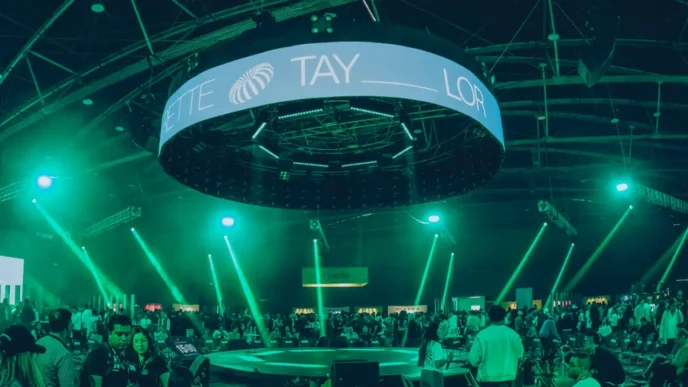Salesforce just made a bold move in the AI arms race. On May 15, 2025, it announced the acquisition of London-based AI startup Convergence—a deal that could reshape the future of enterprise automation. With this acquisition, Salesforce is not only beefing up its Agentforce platform but also stepping into direct competition with OpenAI’s Operator, Anthropic’s Claude, and Google’s Duet AI.
Convergence may have launched only a year ago, but its journey has been anything but ordinary. Founded in April 2024 by Marvin Purtorab and Andy Toulis—two AI veterans from Shopify and Cohere—the company quickly became a magnet for elite talent from DeepMind, Meta, OpenAI, and PolyAI. It raised a $12 million seed round just five months later, backed by Balderton Capital, Salesforce Ventures, and Shopify Ventures. Even Vladyslav Yatsenko, co-founder of Revolut, joined the cap table. By May 2025, Salesforce swooped in with a buyout deal reportedly valued between $150 million and $200 million, giving early backers like Balderton a 300% IRR in record time.
Inside the Deal: Real-Time AI Agents and Disruptive Pricing
At the heart of Convergence’s value is its proprietary LMLM architecture—short for Large Meta Learning Model. Unlike traditional AI tools, this system can learn on the fly, adapt to real-world website changes like pop-ups and error messages, and retain long-term memory across complex workflows. Its flagship product, Proxy, was already outperforming major players in beta tests. Users saw tasks completed 40% faster than with Claude and needed 60% fewer manual tweaks compared to OpenAI’s Operator. It’s not just smart; it’s resilient and context-aware.
This acquisition gives Salesforce much more than code. It gets 150 world-class engineers—among them 12 from Google DeepMind and 8 from Meta AI—who will now anchor the company’s new London AI Lab. The UK hub fits into Salesforce’s broader $4 billion UK investment strategy and aligns with the government’s recent £1 billion AI infrastructure push. According to Jayesh Govindarajan, Salesforce’s EVP of AI/ML, London offers unmatched proximity to ML research centers like Cambridge and one of the densest AI talent pools in Europe.
The acquisition also prompted a major overhaul of Agentforce’s pricing. Previously, it charged $2 per conversation with a limit of 50 actions. Starting this month, users can get 100,000 Flex Credits for $500, with each action costing 20 credits. That’s just $0.10 per action—nearly 60% cheaper than OpenAI’s Operator and 45% less than Claude’s enterprise API. Enterprise users can also opt for unlimited internal agent use at $550 per month per seat. OpenTable, an early adopter, says the change has already slashed its automation costs by 35%.
What’s Next: Slack Bots, Hybrid Models, and AI Regulations
Salesforce plans to deeply embed Convergence’s tech across its stack. First up is expanding Agentforce with vertical-specific agents—like one that automates healthcare prior authorizations and another that helps underwrite loans in finance. These will roll out in Q3 2025. By Q4, Agentforce will support direct Slack commands like “/book_meeting,” enabling seamless team automation.
Next comes hybrid reasoning. Salesforce will blend its Einstein LLMs with Convergence’s LMLMs to power AI agents that can prioritize leads based on CRM context or auto-correct errors in marketing campaigns. It’s a unique combo—one that mimics human problem-solving better than anything else on the market.
Finally, Salesforce is gearing up for the EU AI Act, coming into force in 2026. It’s adding audit trails for agent decisions and building bias detection tools, using benchmarks like Claude 3.7 to ensure compliance. This is no small detail—it’s a strategic move that puts Salesforce ahead on regulatory readiness.
Competitors are scrambling to catch up. OpenAI is fast-tracking its Operator launch in the EU. Anthropic is slashing Claude API prices with help from AWS. Google is expanding Duet AI into SAP and ServiceNow. But Salesforce holds a few key advantages: 1.5 million developers trained on Einstein, native CRM integration that minimizes latency, and a generous Flex Credit subsidy through its Foundations program.
In short, Salesforce now leads the field in real-time web adaptation, collaborative workflows, and affordable AI pricing. As Balderton’s James Wise put it, this isn’t just a quick exit story. It’s Europe’s declaration of intent in the global AI agent race.













